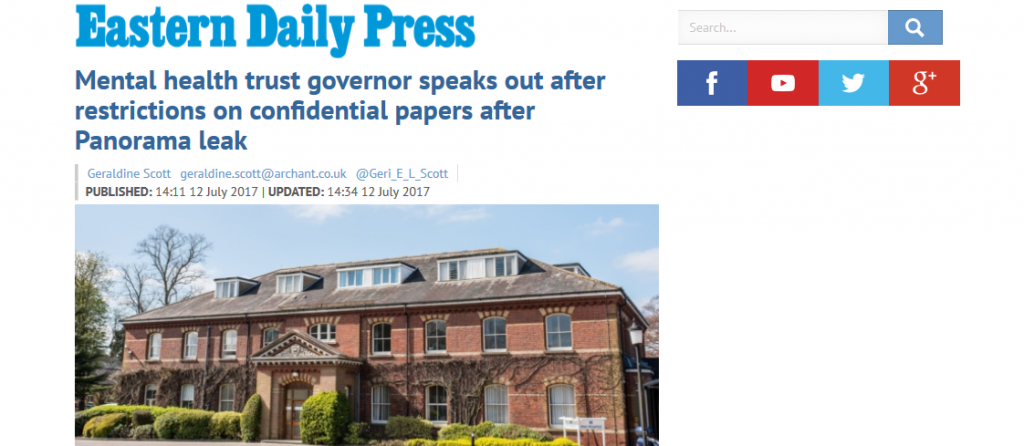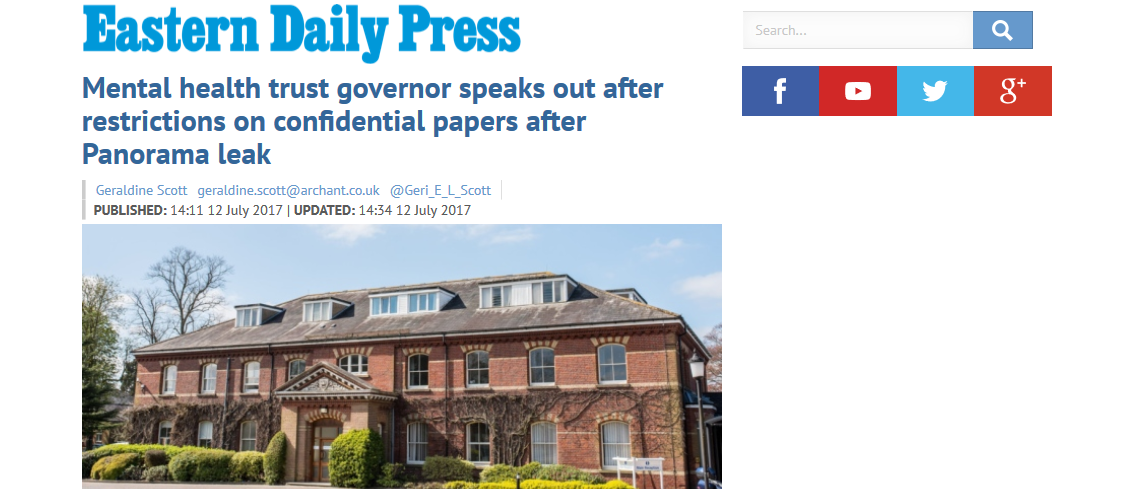Geraldine Scott of the Eastern Daily Press reports:
Aired in February this year, the programme shone a light on the Norfolk and Suffolk NHS Foundation Trust (NSFT) and how the number of unexpected patient deaths at NSFT rose when the trust cut services as part of its “radical redesign”.
But after papers for the board of directors’ meeting were leaked to the show, governors will no longer receive confidential papers with the exception of the lead governor, who must discuss what other governors would see with board chairman Gary Page. But the move was slammed by one governor, who spoke to this newspaper anonymously and said: “There is considerable disquiet about the decision to withhold vital information. Many governors who are supportive of the NSFT board are unhappy with this decision.
“The role of lead governor is only supposed to become prominent in moments of conflict with a trust board to allow a CoG to bypass the chair and directly communicate any serious concerns to the regulator of foundations trusts, Monitor. In essence, the lead governor has become a shadow director of the trust rather than a governor acting primus inter pares.”
They added there was already tight control of the governors. They said: “These further changes make proper corporate governance virtually impossible. It is the fear of retribution, of the further withdrawal of information, that forces me to speak anonymously. It shouldn’t be this way.”
Robert Nesbitt, the overpaid and ridiculously-titled ‘Company Secretary’ of NSFT, makes some excuses which we won’t bother to reprint here.
However, the EDP reports that:
Guidance published by Monitor said “there is no legal basis on which the minutes of private sessions of board meetings should be exempted from being shared with the governors”. However, the lead governor would still be able to see these papers at NSFT.
How can we have faith in the independence of the lead governor?
Nesbitt continues:
He said: “As set out in the Health and Social Care Act (2012), the overriding role of the council of governors is to hold the non-executive directors, individually and collectively, to account for the performance of the board of directors and to represent the interests of foundation trust members and of the public.
They’ve been so good at that, haven’t they?
“The board of directors is responsible for the direction and performance of the trust, while the council of governors is responsible primarily for assuring the performance of the board.”
How can governors assess performance without the necessary information, even if only a few of them are minded to do so?
However, the governor said: “Information is now shared on a purely subjective basis of ‘who can be trusted?’ and ‘what do chosen governors need to know?’. This is too close to ‘who do we like?’ and ‘are they one of us?’ for comfort.”
That’s exactly the way NSFT works. Or doesn’t.
Click on the image below to read the story in full on the EDP website:


Makes you wonder what else they hide that we don’t know about
great article
great article